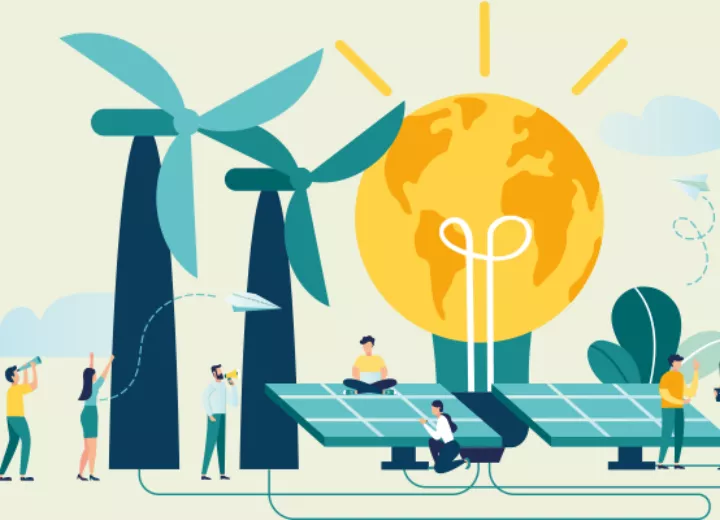Opportunity knocks: How might impact assessment enhance positive benefits for nature, biodiversity and communities after COVID-19? Joe Nisbet reports
Boris Johnson has announced his desire to 'build, build, build' in order to stimulate an economic recovery from COVID-19.
It is important that environmental and social benefits are promoted as a key pillar of this 'infrastructure revolution' – especially as forthcoming planning reform in England could see deregulation and simplification of project environmental impact assessment (EIA) – see the government's 'Planning for the future' consultation at bit.ly/2Hj4oKl
What role might EIA play in helping us 'build back greener'? Well, we could use this period to promote opportunities to enhance nature and improve communities' wellbeing. The UK faces pervasive biodiversity loss and profound economic challenges to local businesses and communities, so using EIA development to deliver enhancements would seem a no-brainer – particularly if viewed as an 'aggregate system' where benefits could accrue over multiple projects. It would be even better if that aggregate effect was strategic, perhaps on a national scale, so that benefits are directed to receptors that need them most.
Challenges
There are undoubtedly challenges to creating additional benefits through EIA. Some of the existing barriers include:
- Lack of any legislative requirement to 'enhance'
- Enhancement may be viewed as costly and time-consuming
- Uncertainty as to who is responsible for long-term management and financing.
There are also future challenges if we are to deliver more development at a faster rate. In England, the language used for wider EIA reform is 'quicker, simpler and consolidated'; it is important that the environmental and socioeconomic benefits of EIA aren't lost through this reform (see Bond et al.'s 2014 paper Impact assessment: Eroding benefits through streamlining?, available at bit.ly/3knIUKB). Any simplification could place enhancement further down the list of priorities, if even existing best practice and environmental standards for EIA are at risk of being watered down.
“Forthcoming planning reform in England could see deregulation and simplification of project EIA“
Opportunities
In terms of promoting enhancement, we might look at sectors that already create additional benefits as part of their planned project deliverables, such as onshore renewables. Success in this industry creates an argument for publishing bespoke sectoral best practice principles concerning enhancement, endorsed by relevant industry bodies. The guidance on biodiversity net gain released by IEMA, the Chartered Institute of Ecology and Environmental Management, and the Construction Industry Research and Information Association (bit.ly/3jlmAji) could act as an initial template.
This approach could help foster a mutually competitive environment among similar developers that recognise enhancement as an opportunity to be looked on favourably when it comes to planning consent. Following this, it's important to identify and promote case studies of exemplary projects that show both environmental and social gain.
The enhancement of nature and society should also be accepted as a project objective at the start of the process, before designs are 'fixed'. The same is true of mitigation. This would help prevent the deployment of expensive offsetting and enhancement schemes as an afterthought or 'cherry on top'.
IEMA has published six recommendations for ensuring an effective EIA system in the face of reform (bit.ly/2HyXRv2). Two in particular promote the creation of additional benefits: Publish clear requirements and standards for EIAs – promote enhancement of positive impacts as a core objective of EIA Ensure Environmental Management Plans (EMPs) are central to the EIA process – EMPs are a great mechanism for clearly detailing enhancements. They can provide clarity on implementation, which can aid transcription into planning conditions.
Hopefully, COVID-19 can be a catalyst for positive change. Holistically creating benefits for nature and society as part of development will be crucial if we are to 'build back greener'. At the time of writing, consultation on EIA reform is expected to be held in the autumn of 2020, with details to follow in 2021. Perhaps this is an opportunity for IEMA, the wider impact assessment community and graduates entering the sector to shape the change we want to see.
Joe Nisbet is an IEMA Futures Steering Group member and an incoming graduate consultant at Arup.








